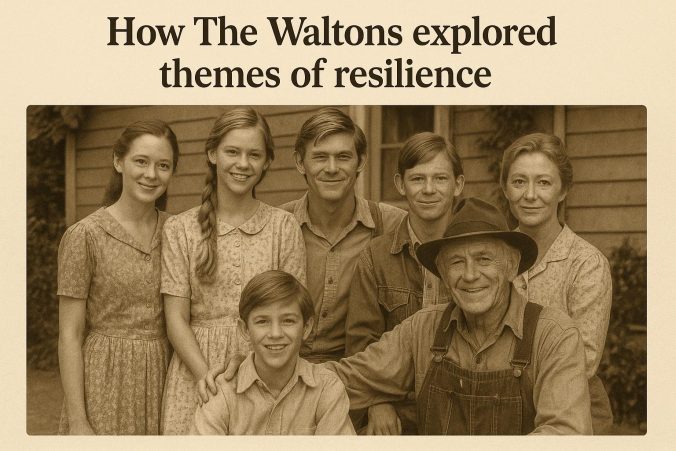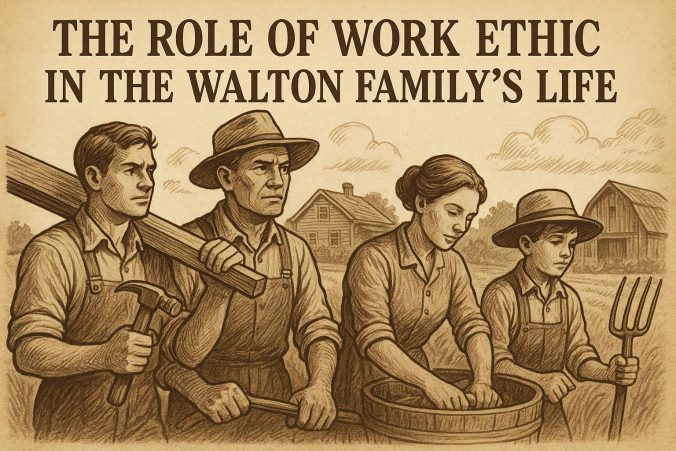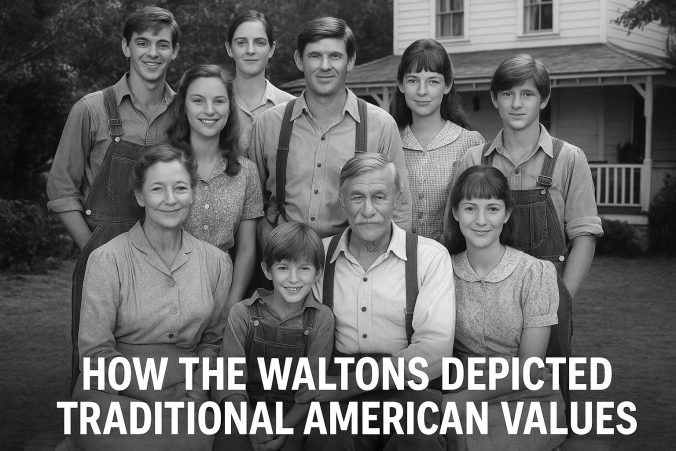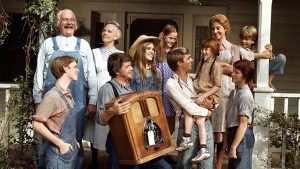The Waltons: An Exploration of Resilience
The television series The Waltons is a staple of American culture, capturing the attention of audiences from 1972 to 1981. Set during the Great Depression and World War II, the series delves into the lives of the Walton family, living in rural Virginia. This period drama, inspired by Earl Hamner Jr.’s book Spencer’s Mountain, is renowned for its portrayal of resilience, a theme woven intricately into the fabric of the series.
Economic Struggles and Resilience
The backdrop of the Great Depression presents a harsh economic reality for the Walton family. Despite financial hardships, the family displays a consistent theme of resilience through their persistence in maintaining their sawmill business and farm. They face economic adversity with determination, showcasing their ability to adapt and persevere. The show’s narrative often illustrates how pooling resources and mutual support among family members can overcome financial difficulties.
The economic challenges faced by the Waltons are presented with an authenticity that resonates with anyone who has ever faced financial strain. Throughout the series, viewers witness the family using creative problem-solving to keep their business afloat. The sawmill and farm are frequently depicted as vital to the family’s survival, not only economically but also as elements that bind them together. In a time when jobs were scarce, and many families faced destitution, the Waltons’ ability to sustain their livelihood stood as a testament to their resilience and resourcefulness.
Moreover, the series portrays the broader community in Walton’s Mountain as a network that supports its individuals and families throughout financial crises. This sense of community mirrors real historical experiences during the Great Depression, emphasizing the theme that community resilience is often formed through shared struggle and mutual aid. Through these depictions, The Waltons provides valuable insights into how families and communities can endure and adapt during tough economic times.
Family Unity as a Source of Strength
In the series, family unity is depicted as a cornerstone of the Waltons’ resilience. The strong bonds between family members are evident throughout, acting as a primary source of strength during trying times. Episodes frequently showcase family meetings where decisions are collectively made, emphasizing the importance of shared responsibilities and emotional support. By highlighting the value of familial ties, The Waltons underscores how resilience is bolstered by solidarity and collaboration.
Family unity in The Waltons is not just about physical presence but also encompasses emotional and psychological support. Each member contributes to the well-being of the family, whether through shared labor on the farm or providing counsel during difficult times. The generational ties that bind the Walton family together also serve as conduits for passing down values, traditions, and stories, further reinforcing their collective identity and resilience.
The series also shows the importance of family rituals and traditions in maintaining harmony and stability. Sunday dinners, Christmas gatherings, and other family events are portrayed as opportunities for reaffirming ties and supporting each other through conversations and shared experiences. Such moments serve as potent reminders that family unity is a powerful buffer against external pressures and a vital source of inner strength and determination.
Coping with Loss and Hardship
The narrative does not shy away from addressing the emotional aspects of resilience. The Walton family encounters numerous personal losses and hardships, including deaths, illnesses, and wartime separations. The show portrays their grieving processes realistically, displaying how they find resilience in community support and individual strength. Characters often turn to one another, reflecting on their experiences and deriving lessons from adversity to emerge stronger.
In portraying loss and hardship, The Waltons provides a nuanced look at the cycles of grief and recovery. The series portrays mourning not as a linear process but as one with ebbs and flows, where characters experience differing reactions and timelines. The strength found in community is depicted as a vital component of resilience. Neighbors and extended family members frequently step in to offer practical help, share burdens, or provide comforting presence, illustrating that resilience is rarely a solitary endeavor.
The family also grapples with the separation and uncertainty brought on by wartime service. In these moments, the show emphasizes the resilience required to maintain hope and perseverance in the face of the unknown. The Waltons exemplify the human capacity to carry on through the support of others, religious faith, and a shared vision for the future, showcasing how adversity can lead to strengthened resolve and renewed purpose.
Moral and Ethical Resilience
The Waltons also explores themes of moral and ethical resilience. The series is rich with instances where characters face moral dilemmas, often having to decide between easy, potentially wrongful actions and challenging, principled choices. The show illustrates how the Waltons uphold their values in the face of societal changes and pressures, highlighting their resilience in maintaining integrity. This aspect of resilience underlines the significance of staying true to one’s principles amid adversity.
Ethical resilience is portrayed through various character arcs where maintaining integrity requires courage and sacrifice. The Walton family often confronts issues that demand moral fortitude, be it standing up for neighbors facing injustice or grappling with complex social changes brought about by modernity and war. These situations offer viewers a view into the family’s steadfast adherence to deeply held values, even when they come with personal costs.
Through such narratives, The Waltons imparts the lesson that resilience is as much about holding firm to one’s ethical compass as it is about surviving economic or physical hardships. The series thus acts as a mirror, reflecting the everyday moral challenges faced by individuals, and demonstrating how resilience is bolstered by the courage to act ethically.
This nuanced portrayal of resilience has allowed The Waltons to resonate with audiences for decades. By addressing economic, familial, emotional, and ethical aspects of resilience, the series provides a comprehensive exploration of how individuals and communities can thrive in the face of adversity. For more information about the series, you can explore resources such as articles, reviews, and fan sites dedicated to The Waltons.




